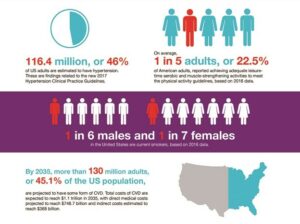The American Heart Association’s most recent report stated that cardiovascular diseases strike nearly half of Americans, making having specialists on-site vital for most hospitals. However, this isn’t always possible. Having telecardiology services can make a big difference.

The Challenges TeleCardiology Provides Solutions To
Having a telecardiology program is a great benefit to all hospitals. However, it is especially helpful for small hospitals. Small hospitals typically don’t have access to as many specialists and end up transferring their cardiology patients to other facilities, which is a hassle for the patient and reduces possible revenue for the hospital.
Rural Hospital Specialist Access & Reduced Cardiology Transfers
The primary forms of heart disease include coronary artery disease (CAD), heart rhythm problems, heart valve malfunctions, and heart failure. With a telecardiology program, rural hospitals can admit, diagnose, and monitor cardiology patients, reducing the number of patients that need to be transferred to a tertiary hospital.
While an Emergency Department physician or hospitalist can order diagnostic studies, they are not qualified to review them. Having an experienced cardiologist available to review the data and provide guidance for the next steps is paramount.
The Benefits of Having Telemedicine for Cardiology
There are many reasons why having a telemedicine program would be beneficial, regardless of the size of the hospital. However, there are specific benefits that come with TeleCardiology.
- Constant Access to Cardiologists
- Fast Response Time
- Reduced Transfers
- Increased Patient Access and Satisfaction
- Eliminate Physician Recruiting Costs
- Minimize Readmissions
- Maximize ROI with Incremental DRG Reimbursement
What Eagle Telemedicine Cardiologists Can Provide
Eagle helps solve the issues that hospitals facing physician shortages are seeing by providing physicians that patients can connect with within a few minutes. Increased access to specialists is especially important for patients who need immediate attention. Within the cardiologist specialty Eagle’s physicians can provide patients with thorough diagnosis and care via virtual exams, real-time cardiac monitoring, diagnostics, and provider-to-provider consultations.
While patients who need surgery would still need to be transferred to a hospital with a cardiologist on site, having a remote physician available to diagnose patient symptoms early on and offer advice for treatment and management will reduce the number of transfers significantly, easing the strain to on-site cardiologists and allowing them to prioritize scheduled procedures and emergency visits.
Eagle Telemedicine has a variety of programs that allow hospitals to access telemedicine specialists in 17 different fields. We also provide night shift and staffing gap solutions and remote study interpretation. Contact us to see how our telemedicine services can help you achieve your goals.
Related Posts:
Telemedicine in Gastroenterology: A Hospital Specialized Care Option
5 Telemedicine Long-term Benefits for Hospitals






